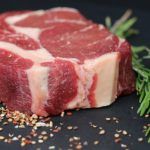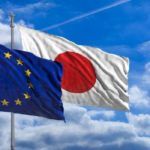In a report published recently, the EU confirms for yet another year its position as largest global exporter of agri-food products, with EU exports reaching €138 billion in 2018.
Agriculture products represent a solid share of 7% of the value of EU total goods exported in 2018, ranking fourth after machinery, other manufactured goods and chemicals. Agriculture and the food related industries and services together provide almost 44 million jobs in the EU. The food production and processing chain accounts for 7.5% of employment and 3.7% of total value added in the EU.
Exports
The top five destinations for EU’s agri-food products continues to be the United States, China, Switzerland, Japan and Russia, accounting for 40% of EU exports. In addition to negotiating trade agreements that provide further opportunities for EU farmers, the European Commission helps EU exporters to enter new markets and benefit from business possibilities through promotion activities, including high-level missions led by Commissioner Hogan. In 2018 and 2019, Commissioner Hogan accompanied by EU producers travelled to China, Japan and the United Arab Emirates.
Wines and vermouth continue to dominate the basket of exported products with spirits and liqueurs ranking second. Then come infant food and various food preparations, chocolate, pasta and pastry.
Imports
Regarding imports, the report concludes that the EU became the second biggest importer of agri-food products with €116 billion worth of imports. This brings the EU trade balance for this sector to a positive net of €22 billion.
The EU mainly sources three types of products: products that are not, or only to a small extent, produced in the EU such as tropical fruit, coffee and fresh or dried fruits (representing 23.4% of imports in 2018); products that are destined for animal feed (including oilcakes and soybeans – together 10.8% of imports); and products used as ingredients in further processing (such as palm oil).
Imports from the U.S. were the fastest growing in 2018, with an increase of 10%, which makes this country the EU’s top supplier of agri-food products.
More information
Access the full news
Report: Agri-food trade in 2018: another successful year for agri-food trade
For more information: Agriculture and Fishery section







Leave a Reply